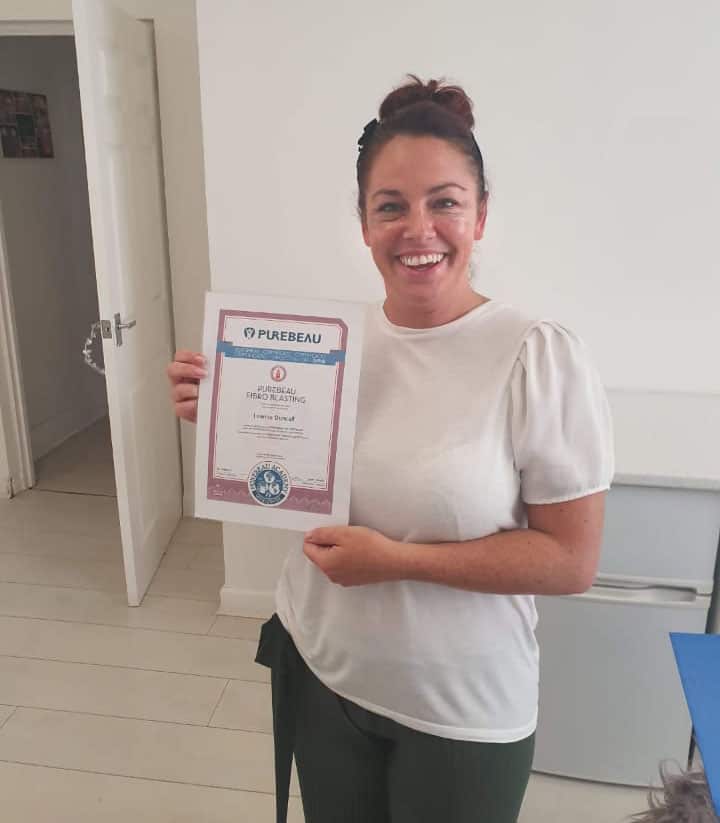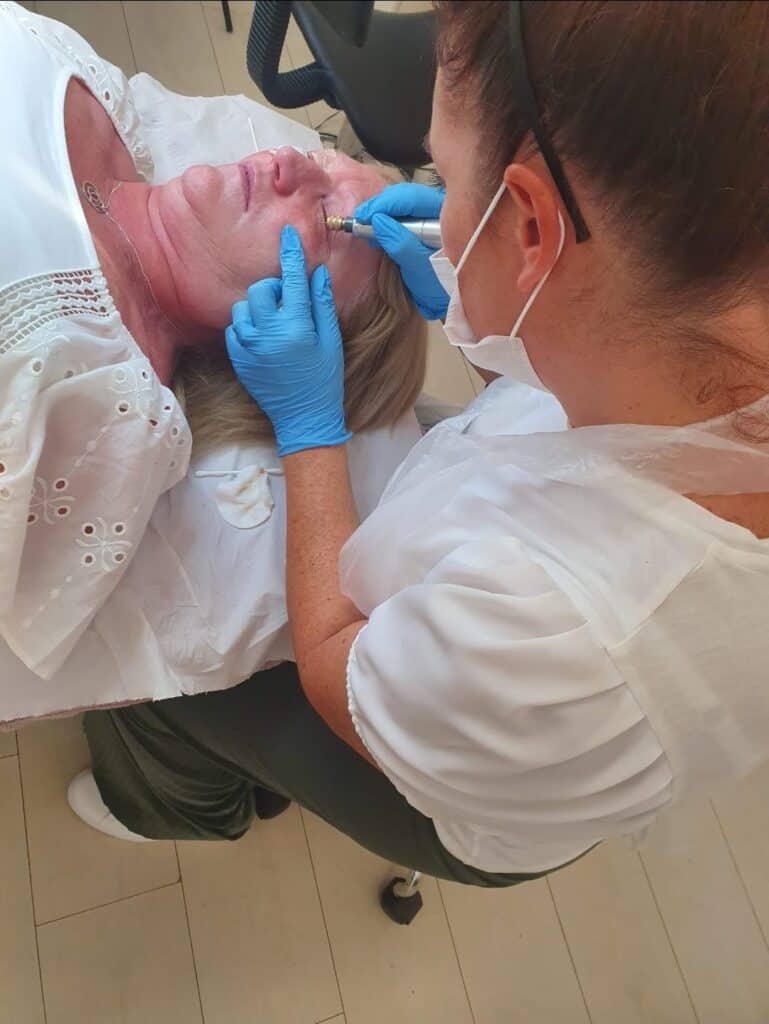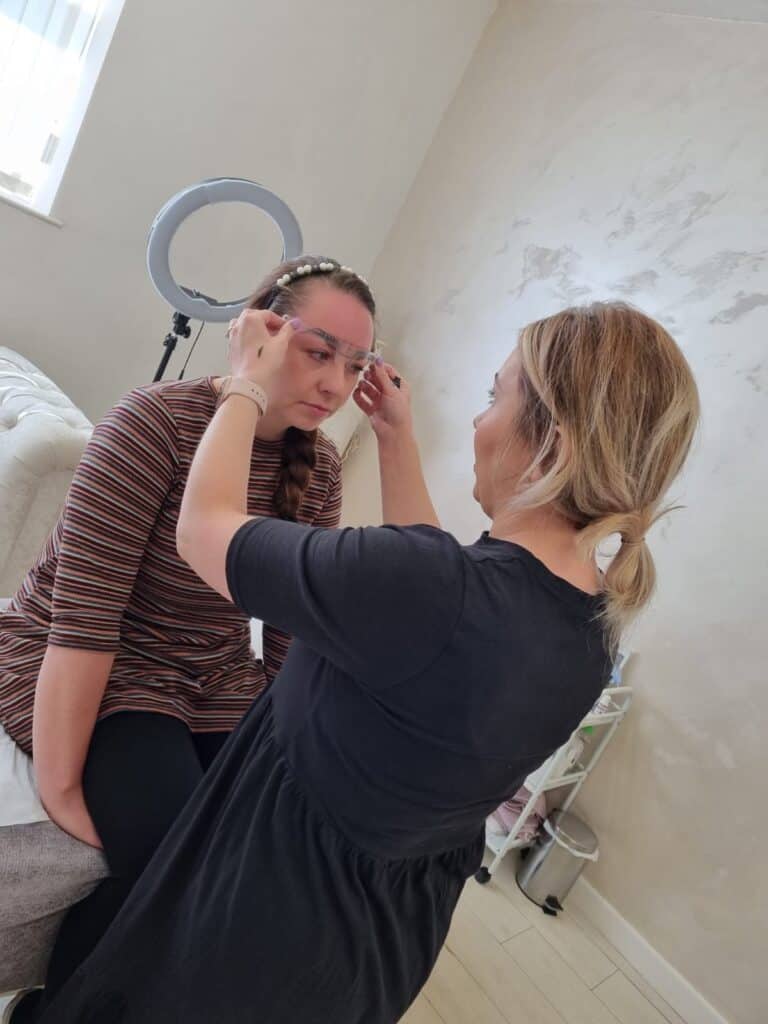How To Become a Permanent Makeup Artist In the UK
Being a semi permanent makeup professional for over 15 years, I know everything there is to know when it comes to semi permanent makeup and microblading. This article will give you an insight of what you need to do to start a career in permanent makeup, and information on the salary you could earn early in your career.
I started from my semi permanent makeup training academy, and I’ve been on an amazing journey since. It’s one of the most rewarding careers out there and I want to share that with everybody across the UK.
How do I start my career in permanent makeup?
To become a qualified permanent makeup artist, you’ll need to complete an accredited PMU course. All of these courses are slightly different in format, but they all cover the same core modules.
What Happens in a PMU training course?
To be a qualified permanent makeup artist, you’ll need to learn cosmetic tattoo techniques whilst ensuring the best practices for safety and hygiene. At the end of the course, you will demonstrate these skills using a model selected by the course leader:
. Basic makeup artist skills
. Strong ability to identify perfect contours
. Hygiene and Dermatology
. Techniques for ideal treatment processes
. Equipment techniques
. Colour theory and how to use colours
. Corrections and professional removal of colour inconsistency and incorrectly positioned permanent make-up
. Extensive hands-on experience; the skills learned are practiced on models provided as part of the course
There are also follow up courses. These include training for professionals, seminars for trainers, a retraining course and courses about professional medical pigmenting.
If you are serious about starting a career in semi-permanent makeup. Fill out the contact form below and Krysia Johnson, our master trainer can provide you with more information about our courses.
How much can I earn as a permanent makeup artist?
The entry-level permanent makeup practitioners typically earn between £40,000 and £60,000 as an average. Cosmetic professionals, even those who have just graduated, usually work for themselves and their income is uncapped.
Permanent makeup clinics like many businesses are scalable. PMU professionals can become qualified to lead their own training course and build their own team. And in this case, £80,000-£100,000 annual salary is an achievable income.
Course advice
- If you’re unsure about anything, don’t be afraid to ask questions.
- For focus, avoid training on an empty stomach.
- Get a good night’s sleep.
- Dress professionally for the occasion.
- You’ll be client facing, make sure you’re friendly and supportive of the model you’ll be training on.
- Arrive on time.
- Take notes throughout the course.
- Revise your notes.

Graduate of the Apsara Permanent Cosmetics Course 

How do I start my career once I’ve graduated?
Once you graduate from a semi permanent makeup training course, you will have to build up your experience for a lower cost than experienced artists. As a permanent makeup artist, it’s important to build up your portfolio and it can be difficult offering a treatment at full price without previous examples of your work.
Generally for the first treatment, you can charge anything around the £100 range, but this all depends on where you live in the UK.
You can continually grow your business on a weekly basis. Get more clients, open your own salon and even launch your own marketing campaigns. When you work for yourself, the sky’s the limit for opportunities.
Tips for marketing your permanent makeup clinic
Here are some tips to help you increase the visibility of your permanent makeup clinic.
Name your clinic – It doesn’t have to be extremely creative, you can even use your surname or your favourite word.
Create a website – You can pay a developer to create a website or make your own using templates. I’d suggest using content management platforms like WordPress and Wix as they allow you to upload your own images and blog posts.
Social Media – Easily the most cost effective option. Create a profile on Instagram and Facebook and upload your portfolio onto there.
Get reviews and build brand trust – Ensure all of your clients review your clinic after their treatment. It’ll help you convert potential clients when they’re researching you.
Digital Marketing – If you’re happy with your website, you’ll want to start generating local traffic. You can pay a consultant or agency for your digital marketing or you can use a platform like Google Ads and start bidding for local search terms.
Offline Marketing – You can rent a billboard in your local area, or even create a radio advertisement.
If you have a limited budget early in your career, just start by creating social media profiles. Friends and family might be able to help you raise awareness of your clinic by sharing your social media profile on their feed.
How old do I need to be to become a permanent makeup artist?
Permanent makeup courses will not be offered to anybody under the age of 18.
How much does a permanent makeup training course cost?
Permanent makeup courses can cost between £3000 and £6000 depending on your current level of knowledge and the chosen training course price.
For example, refresher PMU courses are much cheaper as these are for artists who are already qualified.
How long does a permanent makeup course take?
In most cases, permanent makeup courses can take up to 10 days to complete.
Are permanent makeup treatments difficult to learn?
Generally yes, but If you have a steady hand, attention to detail and an eye for aesthetics becoming a permanent makeup artist is much easier.
Everything you need to know will be covered in your permanent makeup course.
Using Models
When learning how to tattoo permanent makeup, a model will be provided towards the end of your course for you to exhibit your new skills. As a reward for their participation, these models do not have to pay for their treatment.
